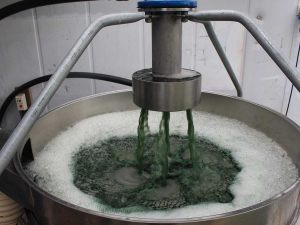The Ministry for Primary Industries (MPI) Sustainable Food & Fibres Futures Fund will invest in a project to assess the viability of larger scale production of spirulina in New Zealand.
MPI and NZ Algae Innovations will be co-investing more than half a million dollars.
The two-year project involves scaling production to test new growing and processing systems.
It will also research the benefits and opportunities of growing spirulina to support the next steps towards full commercial-scale production.
“We want to understand what consumers are looking for, and whether taking spirulina in powder or capsule form is working for them,” said Justin Hall, director at NZ Algae Innovations.
The project aims to establish a new business model so modular production units can be replicated in potential growing regions across New Zealand.
“Market research shows that consumers, particularly in the northern and western hemispheres, are increasingly looking to add more plant-based protein in their diet and spirulina fits that trend nicely,” said Hall.
The project will explore ways of maintaining more nutrient content in spirulina by developing different harvesting and processing methods using techniques from other industries.
Tahi Spirulina production requires less water per unit of protein produced than most alternatives as the spirulina is grown in a contained system that minimises evaporation and prevents leaching.
“Spirulina has a very low carbon and water footprint, so it checks the sustainability box as well,” said Hall.
Steve Penno, Director Investment Programmes at MPI, says establishing an algal protein sector could have considerable benefits for New Zealand.
“Spirulina farming has the potential to create exciting new employment and export opportunities for this country. It would also support the Government's ambition to be carbon neutral by 2050, by offering a new financially viable and sustainable land use option.”











